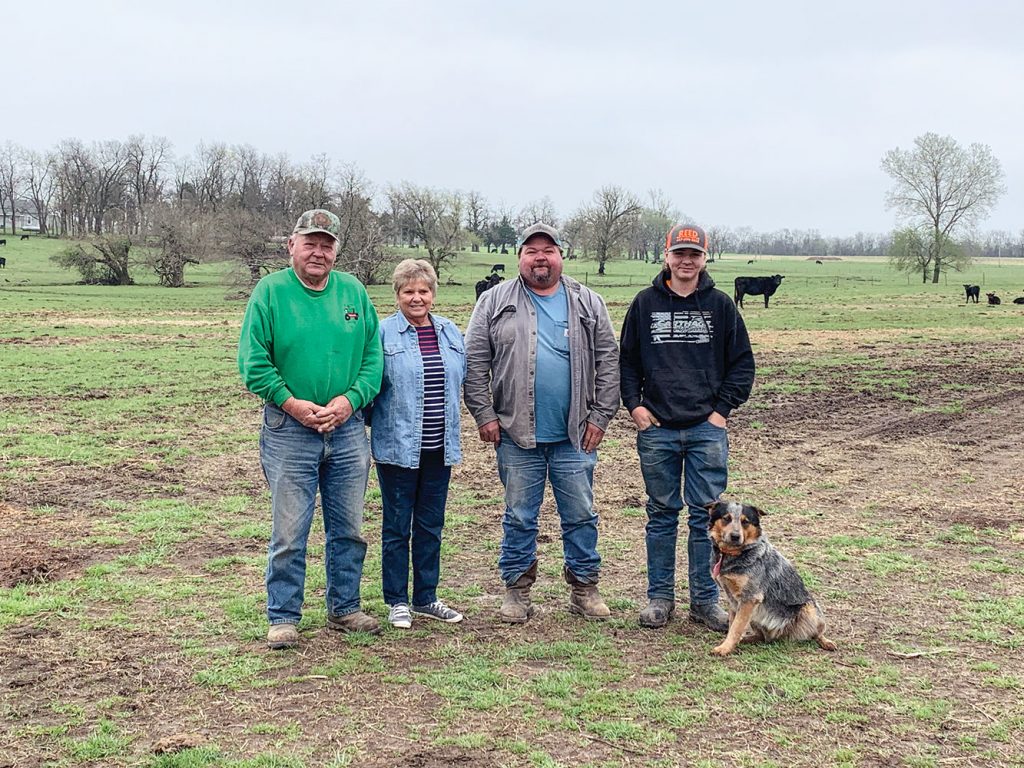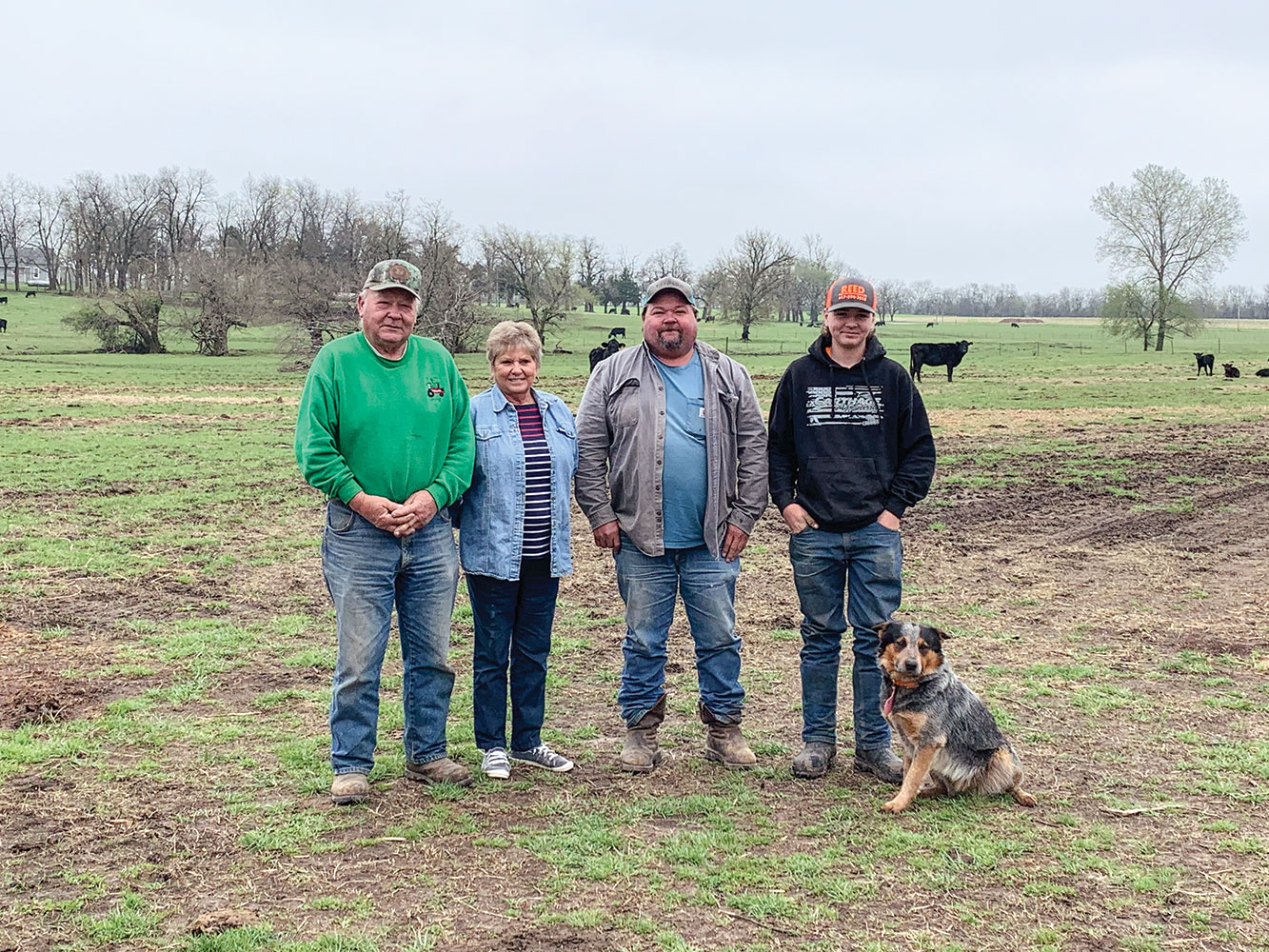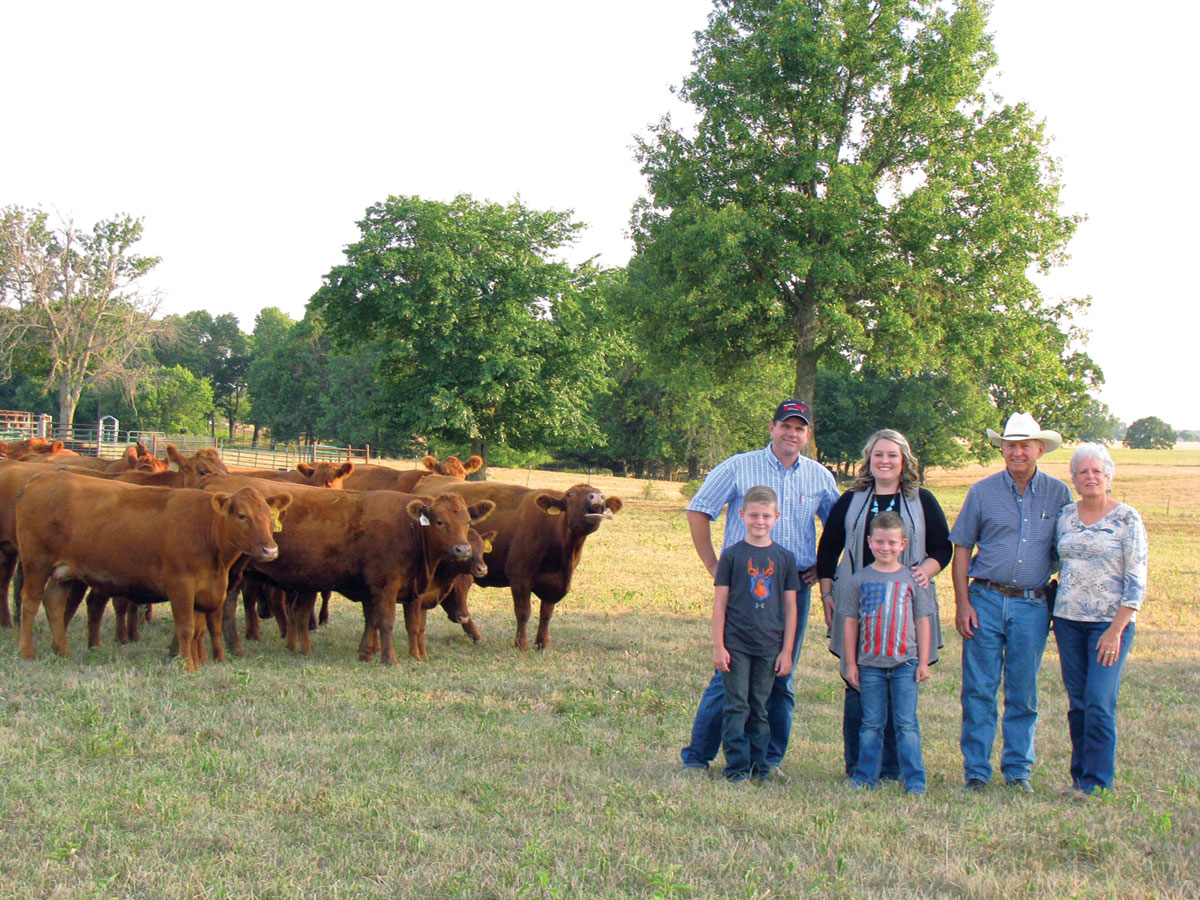
Three generations of the Peters family work together on their family farm. Pictured, from left, are Raymond Peters, Jeanette Peters, Jason Peters and Cody Peters. Raymond Peters’ father George purchased the farm in the 1950s.
Just a few years shy of being a century farm, the Peters still remain on the original 47-acre family farm that Raymond Peters’ dad George Peters bought in 1926.
Raymond was born and raised on the family farm and has continued the livelihood for more than 61 years. When Raymond was growing up, the farm housed a greenhouse and a truck garden. He said some of the irrigation pipe still remains under the fields of the original farm.
When Raymond graduated high school in 1959, his intentions were to be a draftsman engineer, but when his dad passed away just two weeks after graduation, Raymond proceeded to stay at home and farm with his brother Henry.
In 1985, Raymond and Henry dissolved their partnership, and each began farming on their own. Following Henry’s passing in 2001, Raymond took over farming his ground.
Raymond and his wife Jeanette, who received the Jasper County Farm Family Award in 1983, have milked cows, raised hogs and cattle, row cropped, and raised their two children, Jill Waggoner and Jason Peters, on the family farm.
“It’s a good place to raise a family and they have a lot of opportunities that kids in town don’t get” Jeanette said.
Jason farms with his dad and has never wanted to do anything else.
“We made him go to Crowder for one year to get a diesel mechanic degree,” Jeanette said. “He didn’t want to do that, but I think it has helped him throughout the years.”
Jason and his wife Rachel have also raised their two children, Sydney (18) and Cody (16), on the farm. Cody now farms with his dad and grandfather while building feeders at Orbit Products. Cody said his dad and him are a lot alike. They enjoy the independence of farming.
“Being alone in a tractor cab as long as everything is working alright, it’s really nice, but when you have to make the phone call to the upper level that you broke something, then it’s not so nice,” Cody said.
With Raymond, Jason and Cody farming together, the farm has now grown to nearly 1,000 acres owned, and an additional 2,000 acres rented. Their farm ground ranges from extremely red and dry soil to some of the toughest gumbo ground in Jasper County.
They row crop around 500 acres of corn, 300 acres of first-crop soybeans, 300 acres of double-crop soybeans and, excluding this year, 300 acres of wheat. Normally they have a 50/50 rotation but last years really messed things up. “This is the first year in my life that I have never planted wheat,” Raymond said.
They plant short-season corn and later nondeterminate soybeans. About 10 years ago, they started using poultry litter along with continuing their liquid fertilizer.
“We use the commercial fertilizer to balance out what the litter doesn’t have,” Jason said.
The last several years the Peters have gone to almost 100 percent no-till and use GPS for some of their spraying. The no-till saves on fuel, saves the soil and “it’s yielding as good as the neighbors that are absolutely working ground every day” Jason said.
Jeanette added by no-tilling they do not have to pick up rocks on Sunday afternoons like they used to.
During harvest, they hire out the grain hauled from the field to the elevator. What it takes their truck to haul in two trips, a trailer truck can haul in one. This way the combine can stay running in the field and the repairs on old grain trucks are eliminated. They do all minor repairs on their equipment.
The Peters have around 250 cow/calf pairs, plus yearlings, to total about 600 head of cattle.
They mainly have black bulls and mixed cows.
“Black and black white face calves always sell better at the stockyards,” Jason said.
The cows are fed dry hay with supplemental feed and ground hay with corn syrup. They also feed Sudan grass and alfalfa that they raise and bale.
All their cows are bred naturally and vaccinated. They look for docile cows, good milkers and good calf raisers in their breeding stock.
Calves are weaned at 400 to 600 pounds then backgrounded and 80 percent of calves go to market the end of March/beginning of April.
The Peters also do some custom baling along with their own hay. Raymond’s nephew Larry Peters helps them put up around 5,000 round bales each year, selling about 1,500 per year.
“Over the years labor on the farm has gone from manual to automation,” Jason said.
Jason feels inputs such as fertilizer, seed and chemicals will need to be more precise in the future, possibly going from 2 1/2-acre grids to single-acre grids.
In recent years with more computerization, everyone has switched jobs,
“Papa used to combine, plant and bale but is now mowing, raking and making runs for parts,” Cody said. “Dad baled but is now combining and planting, and I used to mow and rake but I’m now baling.”
In the future, Cody plans to take over the cattle operation and set the breeding and vaccination schedule. He also raises a few hogs and cattle of his own.
Raymond has seen a lot of changes since he started farming in 1959 and enjoys the fact he does not have to punch a time clock.
“You have to start slow and gradually grow. Don’t overextend. With farming you don’t jump in and out. You stick and stay,” he said.







